Tech
Sign up for our newsletter
We summarize the week's scientific breakthroughs every Thursday.
-
 Planetary Science
Planetary ScienceSpot on comet chosen for Rosetta mission lander
Philae, the Rosetta mission lander, will attempt to land on a spot called site J on comet 67P/Churyumov–Gerasimenko.
-
 Tech
Tech‘Virtual Unreality’ chronicles dangers of digital deception
Journalist Charles Seife documents how the lies and misinformation that riddle the Internet are harming the real world.
By Janet Raloff -
 Tech
TechSpace tourism’s price tag rockets upward
The “high price” of space tourism proposed in the 1960s is nowhere close to the astronomical price tag of trips today.
By Nsikan Akpan -
 Tech
TechTo have a sound mind, a brain needs a body
Replicating human intelligence in robots requires the right materials for brain-body-environment interactions.
-
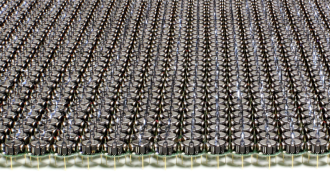 Tech
TechRobot swarm takes many shapes
One Kilobot is not very smart. But 1,000 can follow simple instructions to assemble into multiple shapes without human intervention.
By Andrew Grant -
 Materials Science
Materials ScienceMagnets get flipped by light
Controlling magnetism with lasers could lead to faster computer hard drives.
By Andrew Grant -
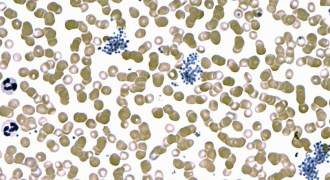 Life
LifeMalaria parasite’s invasion of blood cells tweezed apart
Tugging on malaria-causing parasite cells with laser optical tweezers suggest that the parasite cells interact only weakly with red blood cells and that the interactions could be disrupted with drugs or antibodies.
-
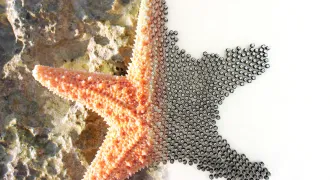 Computing
ComputingThousand-robot swarm self-assembles into complex shapes
A swarm of a thousand tiny robots can now self-assemble into complex shapes, suggesting scientists have taken a step forward in engineering collective artificial intelligence
-
 Physics
PhysicsLaser identifies explosive powders 400 meters away
Green laser pulse allows researchers to detect molecular vibrations in potentially explosive materials.
-
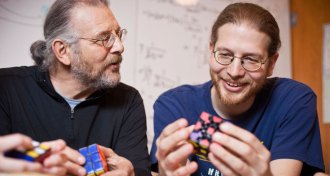 Math
MathFather-son mathematicians fold math into fonts
MIT’s Erik and Martin Demaine create puzzle typefaces to test new ideas.
By Meghan Rosen -
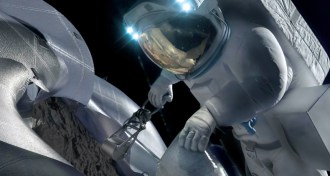 Planetary Science
Planetary ScienceNASA bets on asteroid mission as best path to Mars
NASA wants to bag an asteroid using robotic arms or an enormous sack and place the rock in the moon’s orbit for study. This may keep astronauts working but not, as NASA claims, get them Mars-ready.
By Meghan Rosen -
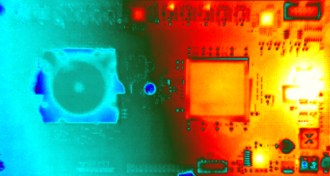 Computing
ComputingBrain-inspired computer chip mimics 1 million neurons
By processing data in parallel, computer chips modeled after the human brain could perform certain tasks, such as pattern recognition, faster and more energy-efficiently than traditional computers.
By Andrew Grant